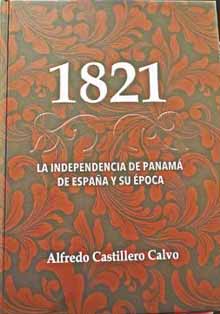Alberto Rubio
Deputy Editor of The Diplomat
If there is one thing that can be said with absolute certainty about Kazakhstan’s history over the past 30 years, it is that, step by step, it has established itself as the leading economic power in Central Asia and the best adapted country to the market economy of all the republics that emerged from the collapse of the Soviet Union.
And all this while navigating the turbulent waters of international geopolitics in which others have been shipwrecked: it has remained a loyal ally of Russia, has opened the doors of its economy to the United States and has established solid relations with the emerging China. Add to that smooth cooperation with Turkey and Iran, and Kazakhstan’s foreign policy has been an outstanding success.
Since 16 December 1991, when a still little-known Nursultan Nazarbayev proclaimed the country’s independence, Kazakhstan has exponentially improved the living standards of its 19 million people and has become the economic leader of the Central Asian republics.
Of course, oil and natural gas are the main drivers of this economic take-off. But it is not enough to have the resources. They must be properly exploited. Other countries in the region and in other continents also have considerable reserves and have not achieved Kazakhstan’s results. Why?
Experts have no doubt: the Nazarbayev government’s determined drive to involve the big energy multinationals in the exploitation of its deposits, accompanied by reforms aimed at a true market economy, has worked the miracle that American, Chinese and Russian companies, as well as British, Canadian and German ones, are investing and operating in the same country without major problems.
As former UN Secretary General Ban Ki-moon noted last week at a conference in Nur-Sultan to mark the country’s 30th anniversary of independence, Kazakhstan has gone in recent years “from being the epicentre of the Cold War to the epitome of progress”. And the fact is that the Doing Business 2019 index ranks Kazakhstan 25th among the countries with the greatest ease of doing business and 22nd among the countries where it is easiest to start a new business. In both cases, to put it in context, Kazakhstan is ahead of Russia, Japan, China or Spain, which is ranked 30th.
Compared to other Central Asian countries that also have access to Caspian Sea oil reserves, Kazakhstan’s route has a much more positive macroeconomic balance: under the government of Nursultan Nazarbayev, the harnessing of energy resources has been extremely efficient and has given a spectacular boost to the country’s GDP, which exceeds $540 billion, well above that of all other countries in the region.
Of course, not everything is perfect. The OSCE has repeatedly criticised Kazakhstan’s elections since its independence from the USSR. And by its standards, it may have grounds for criticism. But a democracy does not thrive on poverty. And former President Nazarbayev understood perfectly well that without development, and fresh out of the former USSR, it was impossible to implement a democratic system such as the one demanded by the OSCE. Reality is stubborn. And to make bread, you first have to harvest the wheat.
The result, however, is that the country has made much more progress than the rest of the region, including Russia; it has considerably more moderate levels of corruption; consumption is growing at a reasonable pace; and citizens are happy enough with the country’s progress, although there are nevertheless criticisms. But the motto of this week’s conference – ‘Leadership, Stability and Progress’ – has been fulfilled, at least so far.
The phrase made famous during Bill Clinton’s 1992 campaign – “it’s the economy, stupid” – makes perfect sense here. It is not a question of whether the standard of living in Kazakhstan is high or low, but whether it is sufficient for its inhabitants. Compared to Western Europe, wages are certainly lower, but so is the cost of living. This leaves a healthy balance that is noticeable on the streets, in the shopping centres, in construction and consumption. It is therefore not surprising that many Kazakhs pay spontaneous tribute to Nazarbayev in the museum dedicated to his life and work. The results of the last 30 years prove him right.
Speaking at the 30th anniversary conference, Mazhilis President Nurlan Nigmatulin stressed that “Nur-Sultan is the symbol of our success”. A success whose next goal is to turn the country into a financial and stock exchange hub for the whole region that will be able to welcome companies from all over the world. The Kazakhstan that began its economic development by exploiting its energy resources with common sense is now ready to apply it to the diversification of its economy in order to avoid depending exclusively on its energy industry. And that is another piece of good news for this young country, only 30 years old, which gives much hope for the consolidation of its progress.
© All rights reserved






